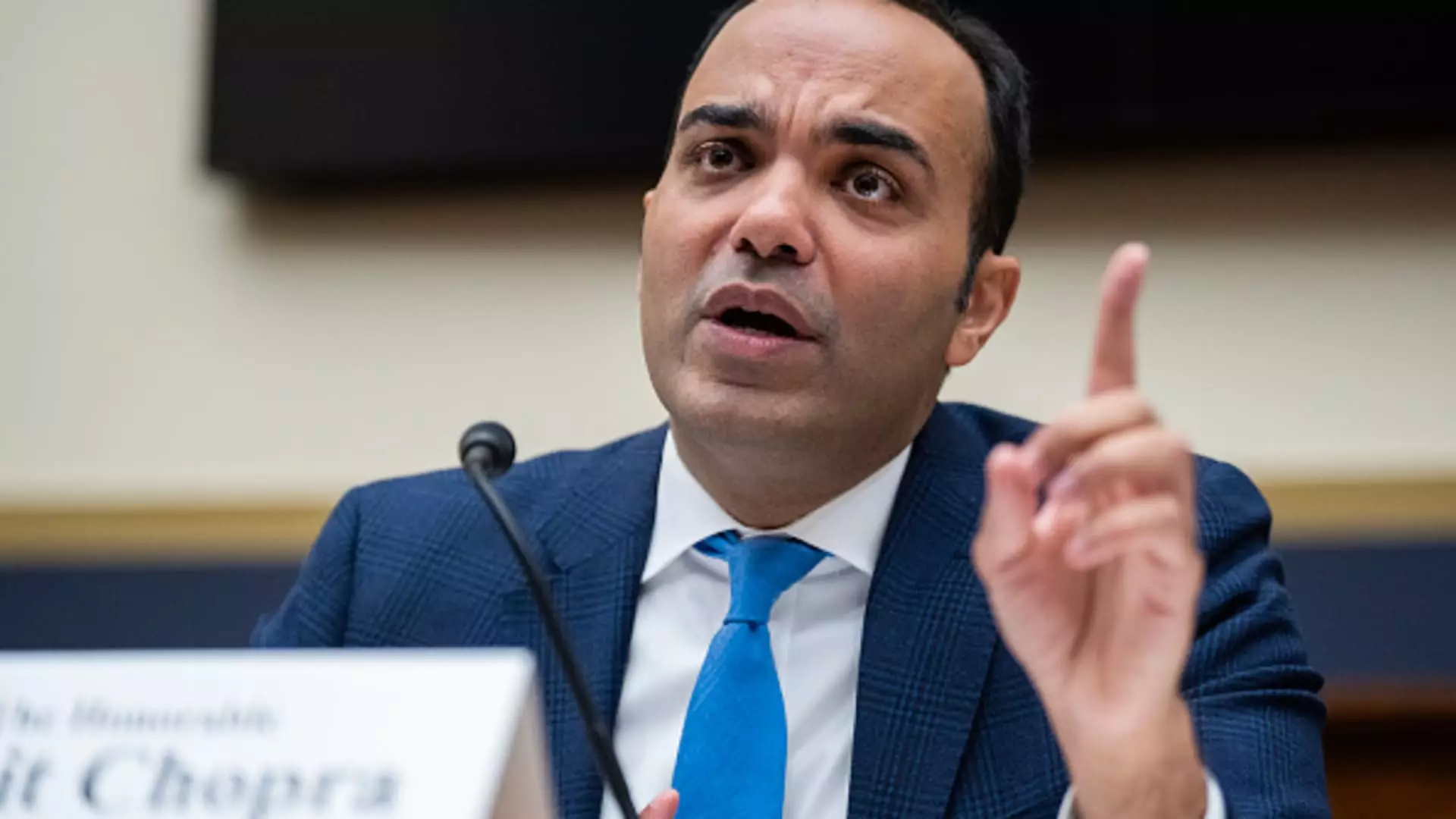On a notable Thursday, the Consumer Financial Protection Bureau (CFPB) unveiled a critical new rule aimed at limiting the exorbitant overdraft fees that banks can impose on consumers. This long-anticipated regulation promises to change the landscape of consumer banking by potentially saving Americans approximately $5 billion each year. The CFPB’s directive allows banks to institute minimal overdraft fees of just $5, a drastic reduction when compared to the typical charges, which generally hover around $35 per transaction. Alternatively, institutions may choose to set fees that only cover their operational costs or maintain flexibility in their fee structures by disclosing interest rates related to overdraft loans.
This move signifies a strong stance from the CFPB against what Director Rohit Chopra identifies as exploitative practices that have plagued consumers for too long. In his statement, Chopra emphasized that banks have historically used a legal loophole to siphon funds from customer accounts, draining billions in the process. The department is clearly prioritizing the need for transparency and fairness in banking practices, especially those that affect the most vulnerable sectors of society.
The significant revenue generated by overdraft fees presents a dichotomy for where banking institutions currently stand. Since the year 2000, banks have amassed an astonishing total of $280 billion from these charges. However, in recent times, the cash influx from overdrafts has seen a downward trend. Major players such as JPMorgan Chase and Bank of America have begun to respond by either slashing fees or addressing the types of transactions that may trigger such penalties. In some cases, they have even discontinued overdraft fees altogether.
The CFPB’s new regulation, which specifically targets banks and credit unions with assets of $10 billion or greater, illustrates the agency’s commitment to reform. This initiative is part of the broader campaign launched by the Biden administration to rein in so-called ‘junk fees’ across various consumer sectors. However, this regulatory measure does not come without its critics; large banking associations have voiced strong objections and, historically, have successfully thwarted other CFPB efforts aimed at financial reform.
The banking industry’s reaction to the newly proposed rules has been predictably resistant. With a history of successful lobbying to block other regulatory measures, including a recent rule capping credit card late fees at $8, it is evident that financial institutions are prepared for a prolonged battle. Notably, a shift in administrative leadership could alter the trajectory of this rule; with Donald Trump poised to appoint a new CFPB director who may align more closely with banking interests, the future of the overdraft fee regulation hangs in the balance.
Moreover, the arguments made by the banking sector reflect a concern for consumer choice and access to financial services. Industry representatives, such as the Consumer Bankers Association, have articulated fears that limiting overdraft services could inadvertently push consumers towards more predatory lending options, like payday loans. While this concern may resonate with a segment of the population, it also raises questions about the ethical implications of high-fee financial products and their impact on the financial wellbeing of consumers.
Scheduled to come into effect on October 1, 2025, the CFPB’s overdraft regulation is emblematic of a wider trend advocating for consumer protection and financial equity. As potential legal challenges loom, the actual implementation of these measures remains uncertain. Nonetheless, if sustained, this regulation could have far-reaching implications for how banks operate and how consumers navigate their finances.
The future will likely require ongoing engagement from all stakeholders, including consumers, advocacy groups, and financial institutions, to facilitate a balanced approach. As the debate around overdraft capabilities, transparency, and consumer rights continues, the CFPB appears resolute in its pursuit of reform. The lasting impact of this regulation on American consumers will unfold over the coming years, potentially reshaping the entire banking industry as it strives to cultivate more ethical practices in lending and service fees.

